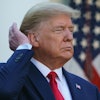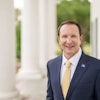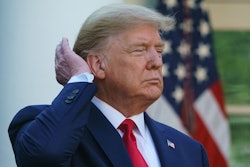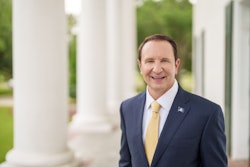WASHINGTON, D.C.
It will take a rallying cry based on national pride, akin to the Soviet-era Sputnik satellite program that forced the United States to enhance its scientific knowledge, to get Americans to realize the importance of the science fields to the American economy, education leaders said on Wednesday.
Less than one-third of the public believe that math and science courses are relevant to life after education, and only 54 percent of the public believe that all students need to take more science and math courses, according to the results of a new poll. It is a significant disconnect, as policy makers and educators have emphasized science, technology, engineering and mathematics, or STEM, fields as vital for the United States to compete in the global economy.
“The public views our global competitiveness as a threat to wage levels, while policy makers view the issue as a need for a better prepared work force,” says David Ward, president of the American Council on Education, which manages the Solutions for Our Future campaign. Solutions for Our Future commissioned the study.
Americans are almost evenly split on whether colleges and universities are currently requiring enough math and science courses, with 46 percent agreeing that they do. A slight majority, 54 percent, believe that all students should be required to take more math and science courses.
Slightly less than half of those surveyed believe the United States will be at or near the top of the global economy in 20 years, and 86 percent believe that some countries, such as China and India, are putting in place policies intended to create a highly technically skilled work force.
The public can sense that there is a mid-term to long-term threat, says David H. Winston, president and founder of The Winston Group, which carried out the survey and hosted seven focus groups. The focus groups consisted of students, parents, recent college graduates and hiring employers.
“It was found that students who took introductory courses in math and science in universities found them to be difficult, uninteresting or not presented in an engaging way,” says Winston. “So universities are in a good position to engage in this discussion.”
Dr. Nancy Cantor, chancellor and president of Syracuse University, and Dr. William E. Kirwan, chancellor of the University System of Maryland, agree that there is a sense of urgency to bridge the perception gap between the public and policy makers. Cantor says it is necessary to find a local hook — to apply scientific solutions to the real world problems affecting the local economy.
“We’re reinventing ourselves to the knowledge economy,” she says. “It’s a challenge, but an opportunity for creating a pipeline for a diverse work force. We are hooking in our K-12 partnership to see science and math as exciting and [applicable to] the real world.”
Kirwan adds that the report “shows a vague receptability on behalf of the public and we can go further.” He says the state of Maryland needs to produce 200 science teachers annually to meet demand. Currently, the state only produces 50.
“We will ratchet up that number and will be the first state to do its share of providing the teachers we need,” Kirwan says.
The seven focus groups were held in Atlanta, Cleveland, Philadelphia and Washington, D.C., and were followed by a national survey of 1,000 registered voters (margin of error = +/- 3.1 percent).
Ward says he is not alarmed by the responses, but says “we need to find a higher level of commitment for these subject areas. We’ve begun policy movements without knowing what the public thinks.”
© Copyright 2005 by DiverseEducation.com


















